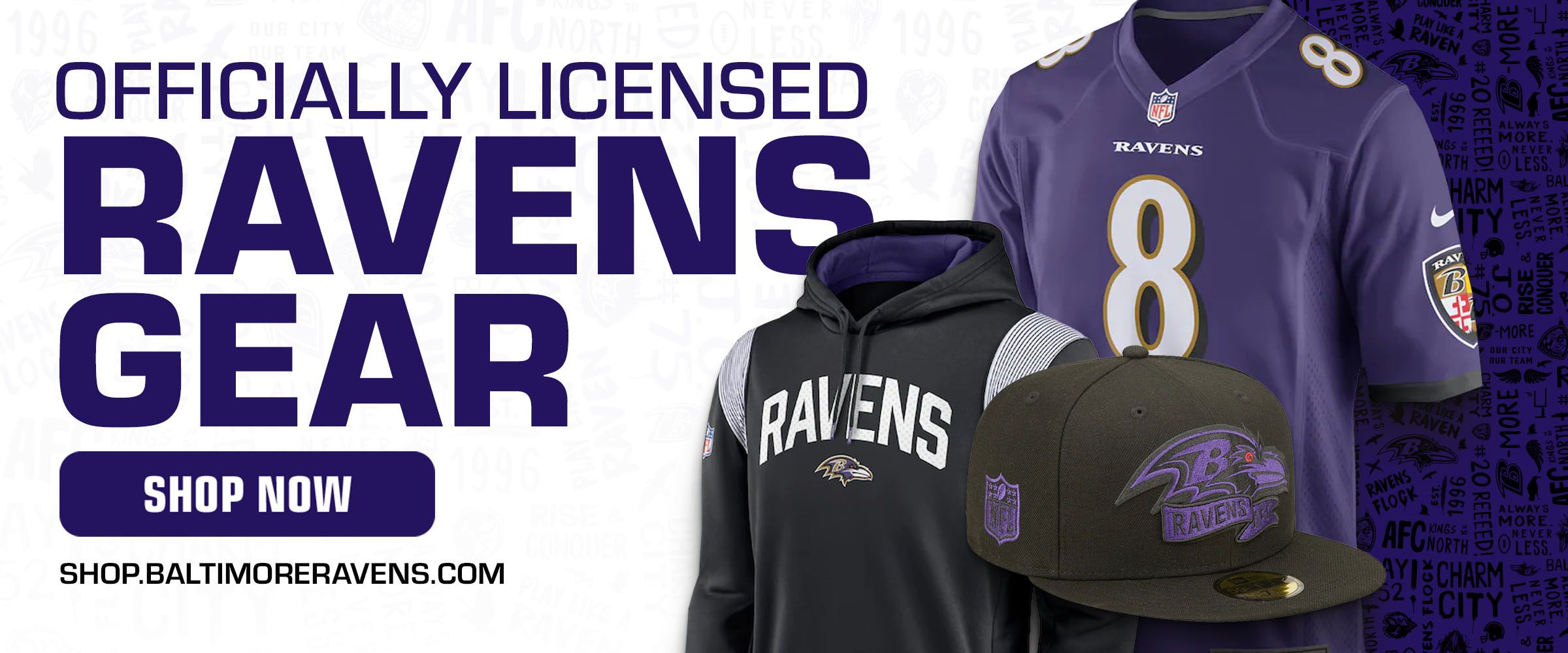The Ravens will hold their rookie minicamp this weekend, and every player wants to make a strong first impression.
Regardless of their talent, all rookies face a transition moving from college to the NFL, and their games are dissected by scouts, coaches and media as part of the draft process.
Here's a question that each player in Baltimore's draft class faces heading into his rookie season:
CB Nate Wiggins, Clemson (first round, 30th overall)
Question: Will Wiggins be a sound tackler?
That's a question Wiggins is asked due to his slender frame, but he has always played bigger than the 6-foot-1, 173 pounds he measured at the Combine.
Nobody questions Wiggins' ability to cover or his speed. Some scouts believe Wiggins was the best cover corner in the draft.
NFL Network's Daniel Jeremiah correctly predicted the Ravens would select Wiggins, but added that "Baltimore will need to help him be a little bit more of an urgent defender against the run."
Wiggins' tackling won't truly be put to the test until the pads come on this summer, but he's a fierce competitor. Defensive Coordinator Zach Orr has watched enough film to believe Wiggins will prove any doubters wrong.
"He comes up and tackles, he comes up and hits; he plays physical, and he's only 20 years old," Orr said. "On tape, I didn't see anything about him being undersized as anything that we critiqued. He flew up, set the edge in the run game, played physical with receivers at the line of scrimmage, came up, tackled … he played like a Raven. We have no concerns about that at all."
OT Roger Rosengarten, Washington (2/62)
Question: How will Rosengarten's run blocking translate from a spread offense to the Ravens?
Rosengarten's pass-blocking was elite as Washington's starting right tackle, protecting lefty Michael Penix Jr.'s blindside.
But only 33 college football teams ran the ball fewer times.
Rosengarten thinks any questions about his run blocking will be answered and is eager to compete for a starting position.
"Just coming from college, we were a pass-heavy offense, so obviously I feel very confident in pass set, but also in my run blocking," Rosengarten said. "I feel like my run blocking is underrated. We were kind of in that spread offense, run-scheme, zone-scheme, but it doesn't matter what scheme it is, I feel confident within run-pass screens, getting out in space. I just feel confident in it all."
OLB Adisa Isaac, Penn State, (3/93)
Question: Isaac has prolific pass rushing potential, but how well will he defend the run ?
Isaac had more sacks at Penn State last season (7.5) than his teammate Chop Robinson (4), whom the Dolphins took with the 21st pick overall. He Isaac could have an immediate impact on the Ravens' pass rush. However, the Ravens see Isaac as much more than someone who gets after quarterbacks.
"I saw a guy on tape that makes a lot of plays, and he does it in a real athletic way," Head Coach John Harbaugh said. "He's heavy-handed against the run. So for us, he's going to be in the rotation."
Isaac is powerfully built at 6-foot-4, 247 pounds, giving him the ability to shed stand up blockers as a run defender. He views himself as a three-down linebacker who will prove himself as a complete player.
"I feel like I'm very versatile," Isaac said. "I can make plays on dropping, make plays on rushing, make plays in the run game. I'm just a very versatile player that you can plug and play anywhere."
WR Devontez Walker, North Carolina (4/113)
Question: Will Walker's route tree blossom?
Every wide receiver needs variety in his game and Walker believes he is more than just a deep threat.
In his draft guide, The Athletic's Dane Brugler described Walker as "a vertical/stretch receiver who requires a linear route tree, but he is a big-play threat with a promising catch radius and the speed to climb on top of coverage."
Walker is driven to develop his route tree, and that process will begin as early as rookie minicamp, [comma] working with Wide Receivers Coach Greg Lewis.
"I feel like UNC did a good job of utilizing what we had. I was the best deep threat, so they tried to keep me on those type of routes because that is where most of my big plays came from," Walker said. "But, I feel like I do have a lot of other tools in the bag and a lot of other routes that I love running and can get open on as well. So, that's something that I'm very eager and ready to showcase on this level."
CB T.J. Tampa, Iowa State (4/130)
Question: Is his recovery speed a concern?
Much was made of Tampa running a 4.59 at his Pro Day, which may have contributed to him falling to Round 4, when he was projected by many to be taken in Round 2. Walker is one of many wide receivers who will test Tampa's speed in practice and Tampa wants to prove he deserved to be drafted much higher, as many people believe.
"I've been at the bottom of a depth chart before, and I'm willing to work my way up again, and that's going to be a chip on my shoulder every day," Tampa said. "I can't wait to get started."
RB Rasheen Ali, Marshall (5/165)
Question: Will ball security be an issue?
Ali had11 fumbles over his final three seasons at Marshall, but the Ravens were greatly impressed with his overall skillset. The coaching staff will surely preach ball security to Ali when he arrives.
"When we evaluate running backs, we're looking for specific things," DeCosta said. "Certainly, ball security is one of those things, but this is an explosive guy, very shifty, good vision, he runs hard."
QB Devin Leary, Kentucky (6, 218)
Question: Can he avoid turnovers and throw more consistently?
In the process of showing NFL arm talent that impressed the Ravens, Leary also threw 12 interceptions last year. His chance to make the roster may hinge on his accuracy and ability to avoid turnovers, and Leary believes playing in Kentucky's pro-style offense last season will help his learning curve.
Even though Leary's stats at Kentucky weren't as good as those at N.C. State, Leary saw his final college season as an important step in his path to the NFL.
"Getting under center, calling plays in the huddle – ultimately, I wish we won a lot more games, but from a developmental standpoint, it was the best thing I could have done to put my best foot forward in the NFL and bring what I can to the table with the Ravens," Leary said.
C Nick Samac, Michigan State (7/228)
Question: Can he also play guard?
Samac was the Spartans' starting center the past two years, but the Ravens have Pro Bowl center Tyler Linderbaum. He'll look to prove he can be Linderbaum's backup, but if he wants to become a starter, his best opportunity is at guard, where the Ravens must replace both of last year's starters. Samac is up for that opportunity after playing guard in high school and taking practice reps at guard with the Spartans.
"I have good size, I have all the tangibles, I can play anywhere coach needs me to be, happy to fit in anywhere, whatever it takes to help the team," Samac said.
S Sanoussi Kane, Purdue (7/250)
Question: Can he play well enough at backup safety and special teams to earn a roster spot?
The Ravens have a need at backup safety behind Kyle Hamilton and Marcus Williams, so Kane will have an opportunity to prove himself. He excelled as an in-the-box safety at Purdue and the Ravens' system will be an adjustment, but shining on special teams would help his chances.
"Sanoussi is a guy that does a lot of things well, he's a tough player, I think he's got good ball skills, he should play on special teams," DeCosta said.



















